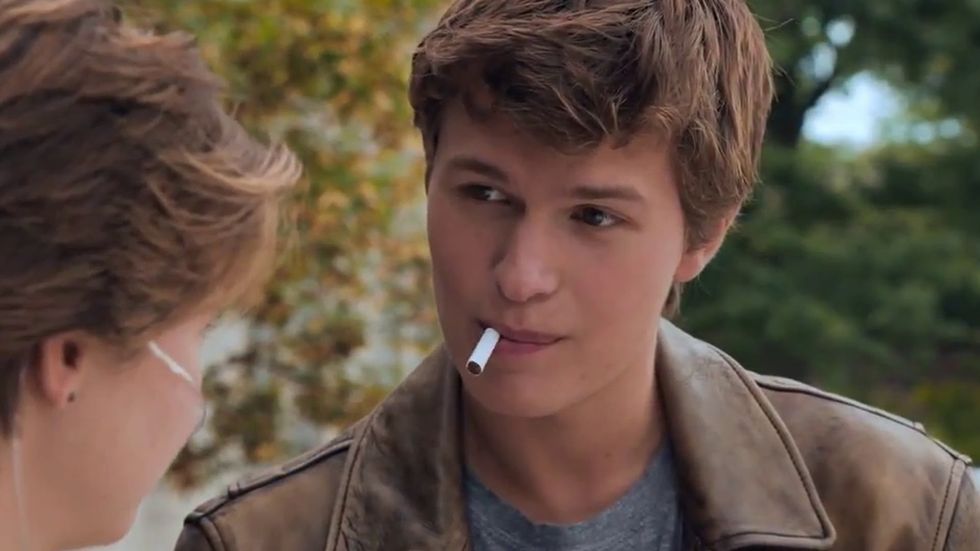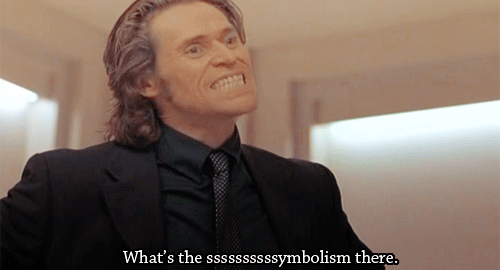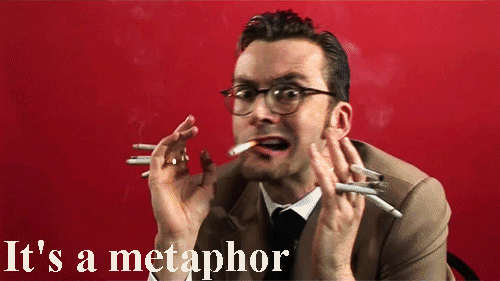You remember the difference between a symbol and a metaphor, right? After all those years of being asked to describe in detail how the rabbit warrens in "Watership Down" were actually a symbol for the different governing bodies in the human world, you would think you'd have an idea.
Duh, a symbol is an object in the story that means something else, and a metaphor is a comparison between two or more ideas.
Great, but if I wanted the high school vocab quiz answer I would've asked for it. In higher education, professors want more from you, especially now that they know we use Google. They've adapted, and it's never been more terrifying.
A symbol is something that continues to be itself in a literal sense, but it also continues to draw more and more associations and meanings as the story progresses. In "12 Angry Men", the stifling heat in the jury room can also be interpreted as the weight on the shoulders of Juror 8. When the vote changes, the jurors are able to turn on a fan. In "Beauty and the Beast", mirrors are used liberally to symbolize the action of seeing yourself as others do, punctuated by Beast smashing a mirror in frustration. A metaphor, on the other hand, is when the author replaces one thing with another in the readers' imaginations. For example, the entire plot of James Cameron's "Avatar" and how it's a blue version of Pocahontas. Chihiro's parents become pigs in "Spirited Away" after helping themselves to food lying in the open in the middle of an empty town square. Metaphors can also be those figures of speech illustrating a comparison, like "Never look a gift horse in the mouth."
I think now would the appropriate time to lodge a formal complaint against everyone who is, for whatever reason, still talking about Augustus Waters and his stupid cigarette metaphor, precisely because it isn't even a metaphor to begin with.


















